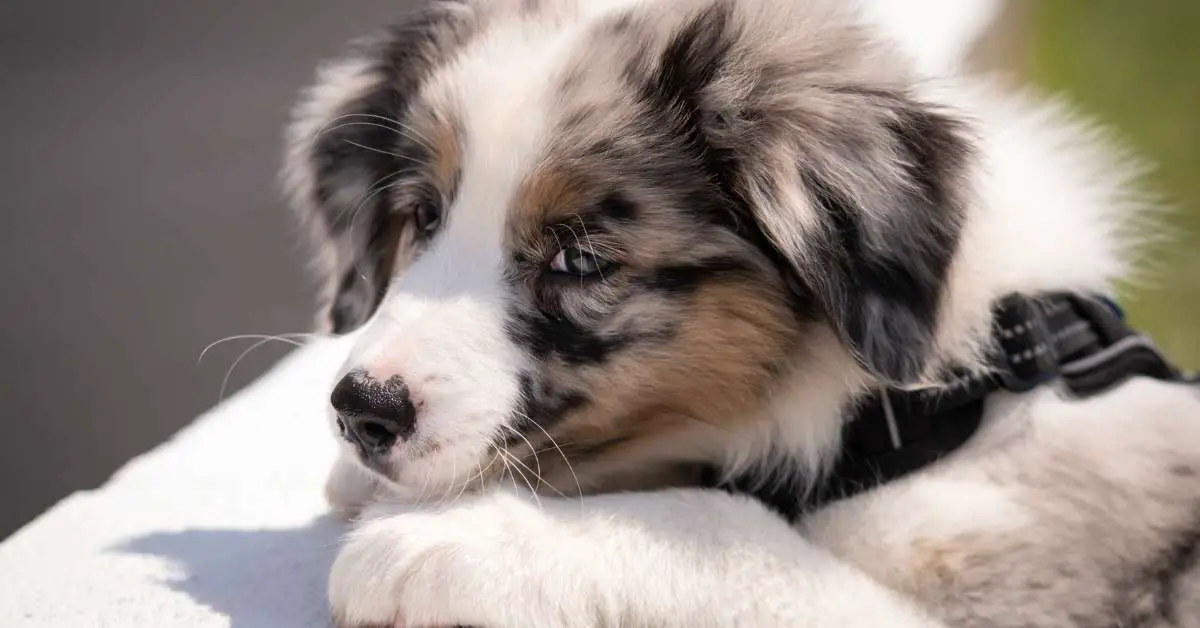Why Does My Dog Keep Shaking His Head? 5 Reasons Why

Ear infections, including those in the ear canal or on the ear flap (pinna), frequently cause dogs to shake their heads.
When bacteria or yeast infest the ear, they lead to inflammation, causing your dog discomfort and prompting head shaking.
Infections in the ear tend to be more prevalent in floppy-eared breeds due to reduced air circulation in their ear canals.
When should I be concerned about my dog’s head shaking?
Head shaking is normal dog behavior, but persistent head shaking should raise concern.
If your dog shakes their head early and continues to do so, it might indicate an underlying issue that needs attention.
If you notice other symptoms like head tilt, shaky legs, inflamed ears, or a foul odor from the ear, consult your veterinarian, as these could signify a more serious problem.
Why Does My Dog Keep Shaking His Head? Bacterial and Yeast Infections in the Ear
Bacterial and yeast infections are among the primary culprits behind head shaking in dogs.
These infections can be painful and itchy, driving your dog to shake its head vigorously in an attempt to alleviate discomfort.
If you suspect an ear infection, it’s essential to seek veterinary care promptly to prevent further discomfort and complications.
Common Reasons Dogs Shake Their Heads
Apart from infections, several other common reasons dogs shake their heads include the presence of foreign objects, water in the ears, and allergies causing itchiness in the ear.
Dogs may also shake their heads if they have ear mite infestations, ruptured blood vessels, or grass seeds lodged in their ears. Identifying the cause is crucial for proper treatment.
1. Ear Infection
Ear infections, especially in adult dogs, can be extremely uncomfortable. Dogs with ear infections tend to shake their heads vigorously to relieve the pain and itchiness in their ears.
If you notice your dog shaking their head persistently and you suspect an ear infection, consult your vet for a proper diagnosis and treatment plan.
2. Foreign Objects
Sometimes, foreign objects like grass seeds or small insects can find their way into a dog’s ear canal.
When this happens, dogs typically react by shaking their heads vigorously in an attempt to dislodge the intruders.
If you suspect a foreign object in your dog’s ear, avoid trying to remove it yourself and seek immediate veterinary assistance.
3. Water in the Ears
Dogs often shake their heads after swimming or bath time to get rid of excess water trapped in their ear canals.
While this is perfectly normal behavior, it’s essential to dry your dog’s ears with a damp washcloth after water-related activities to prevent discomfort and potential infections.
4. Allergies Causing Itchiness in the Ear
Food allergies or environmental allergens can lead to itchiness in a dog’s ears, prompting head shaking as a response.
Consult your veterinarian if you think your dog may have a food allergy; they might advise switching to a hypoallergenic diet. Environmental allergies might require other forms of management.
5. Serious Conditions Associated with Head Shaking
In some cases, persistent head shaking can indicate serious underlying conditions like a ruptured blood vessel or a tumor.
If your dog continues shaking despite treatment for common causes, consult your veterinarian to rule out any serious medical issues.
Read more about why dog shake their heads here.
Conclusion
In conclusion, while dogs shaking their heads is sometimes a perfectly normal behavior, it can also be a sign of discomfort or an underlying health problem.
Understanding the common reasons behind head shaking in dogs and promptly addressing any concerns can help keep your furry friend happy and healthy.
Figuring out your dog’s head shaking early will allow you to treat the issue before it becomes more serious. Your vet will be able to diagnose your dog’s ear infection and give you medication.
FAQs
Why does my dog’s head shake so early in the morning?
Dogs may shake their heads early due to minor discomfort, sleep-related movements, or a desire to clear their ears. If persistent, consult a vet to rule out ear issues.
Can I use half a cotton ball to clean my dog’s ear flap?
Using half a cotton ball can help clean the ear flap, but avoid inserting it into the ear canal to prevent injury. Consult your vet for proper cleaning guidance.
How can I prevent my dog from excessive head shaking?
Preventing excessive head shaking by regularly cleaning your dog’s ears, addressing allergies or infections promptly, and seeking veterinary advice if shaking persists.
What should I do if my dog has an ear infection and head shaking?
If your dog has an ear infection and head shaking, consult your vet for diagnosis and treatment. Follow their recommendations to alleviate discomfort and resolve the infection
